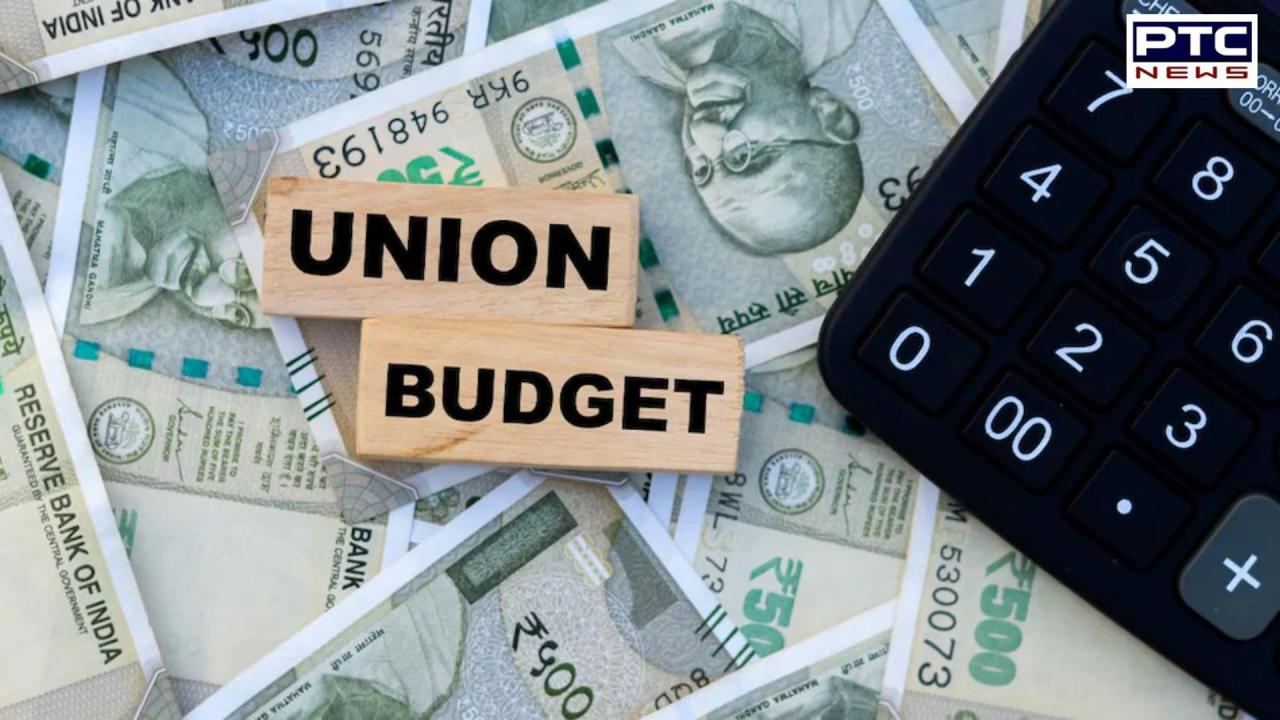
Union Budget 2024: Healthcare experts urge government to increase spending, improve infrastructure, and foster innovation
PTC News Desk: Healthcare professionals have emphasised the need for higher government expenditure, better infrastructure, and increased innovation in order to develop a strong healthcare system in India ahead of the Budget.
Aside from that, the healthcare sector expects more from the budget, including increased R&D, quality improvements, accessibility, and affordability.
The Association of Healthcare Providers - India (AHPI) director general, Dr. Girdhar Gyani, stated in an interview that 'increased government spending is necessary to address emerging health threats and achieve universal health coverage.' He stated that the establishment of a 'Healthy India' should be the top priority for the government, with an emphasis on nutrition, clean drinking water, and sanitation.

"Autonomous state boards should professionalise public health institutes, and Ayushman Bharat Yojana needs to be restructured to encompass all beneficiaries of SECC-2011." "Infrastructure limitations can be addressed by pushing the private sector to open exclusive PG colleges and build tertiary care hospitals in tier-III towns. Furthermore, it is imperative to advance the National Digital Health Mission and encourage the indigenisation of high-tech medical equipment," he said.
As India gets closer to another Union Budget, Suneeta Reddy, managing director of Apollo Hospitals Group, stated that it is imperative to recognise the critical link between our country's economic health and its healthcare infrastructure.
The pandemic revealed the flaws in our healthcare system and made it clear that large investments are desperately needed. A strong healthcare sector must be at the center of our efforts to reach the $5 trillion economy objective.
"This change can be accelerated by designating the healthcare sector as a 'national priority,' as was done with the IT sector in the 1990s. By reducing reliance on imports and increasing domestic manufacturing of medical devices through tax breaks and regulatory assistance, we can improve affordability and accessibility," the speaker stated.
The head of Ujala Cygnus Group of Hospitals, Probal Ghosal, has called on the government to raise healthcare spending to 2.5 per cent of GDP with a particular emphasis on rural areas.
"It is critical to rationalize the GST structure and give healthcare professionals' capacity building and training top priority. It is imperative to improve the healthcare infrastructure in Tier 2 and Tier 3 cities and to promote private investment in medical schools and healthcare facilities."
"Equitable distribution of expertise can be ensured by regulating doctor rotations, rewarding experts in smaller cities, and encouraging private investment in medical colleges through land allotments, subsidies, and loan moratoriums. Furthermore, it is crucial to expand primary health centers (PHCs) through public-private partnerships (PPPs) and increase budgetary allocations for primary care, according to Ghoshal.
"The allocation varying from 1.1 to 1.6 per cent GDP together by the various governments is one of the lowest in the world," noted IMA President Dr. RV Asokan. Furthermore, specific funding should be allocated for health determinants such as drinking water and sanitation.
Therefore, the GDP should set aside a minimum of 2.5% per centfor health alone. The Indian government, both at the federal and state levels, has historically underfunded the public health sector, despite multiple policy declarations that prioritise health. This has led to poor health outcomes and growing disparities in access to healthcare, he added.
Also Read: IAS Officer Smita Sabharwals comment on disability quota sparks major criticism
The current estimate of India's total health spending (public and private) as a percentage of GDP is 3.8 per cent, which is less than the 5.2 per cent average for LMIC countries. The majority of the funding for India's health system comes from household out-of-pocket (OOP) expenses, the speaker stated.
In addition, the IMA has sent a letter ahead of the budget outlining its demands to the Union finance minister. The CEO and MD of Fortis Healthcare, Dr. Ashutosh Raghuvanshi, repeated the requests of Silicon Valley to prioritise healthcare infrastructure by raising GDP spending to 2.5 per cent.
"In order to position India as a worldwide leader in healthcare, we implore the government to declare healthcare a national priority and carry out revolutionary policies. The industry is currently dealing with problems including an underskilled labor pool, problems with indirect taxes, and an underutilized Minimum Alternate Tax (MAT) credit," he stated.
Also Read: Jammu and Kashmir: Terrorists attack Army camp in Rajouri, forces launch massive operation
Dr. Raghuvanshi stated that policies encouraging private sector investment need to be prioritized in order to guarantee rapid and sustained growth.
The implementation of novel models and policies by the government can enhance public-private partnerships, encourage medical value travel, and accelerate the uptake of digital healthcare services.
"This can be achieved by facilitating international insurance recognition for Indian healthcare providers to attract more international patients," he stated.
Apollo Hospitals Enterprises Limited CEO of Telehealth Vikram Thaploo stated, "We anticipate a budget that fortifies the healthcare foundation of our country, as a strong and resilient healthcare ecosystem is a critical driver of India's economic growth." "The Ministry of Health was allotted Rs 89,155 crore in the Union Budget for 2023–24, up nearly 3.4 percent from Rs 86,200 crore in FY 2022–23," he continued.
For the purpose of funding rural healthcare infrastructure, a combination of Public-Private Partnerships (PPP), Research and Development (R&D), and increased funding is needed. Equitable access will be ensured by allocating a sizeable amount of the budget to healthcare research and development and by increasing support for rural hospitals."
Also Read: The Untold Story Behind Sanjeeda Sheikh and Aamir Ali's Divorce Revealed
- With inputs from agencies
